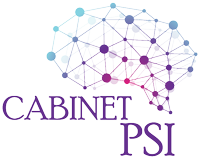
Alcohol Addiction: The Road to Healing and Freedom – Medical Guide and Practical Advice
28 August 2023
Muscles – Organs of Longevity: Dr. Mindy Pelz’s Perspective
27 July 2024Sleep disturbance is a condition that affects the quality, quantity and time of sleep you can get at night, as well as your mental and physical health. Researchers have concluded that partial sleep deprivation (a condition carried out in the study by Nilsonne G. et al., 2017) does not involve major changes in the brain.
Major changes occur if sleep deprivation is for a medium/long duration.
Changes occur in the temporal lobe, in areas involved in working memory or decision-making. The most obvious sign of sleep deprivation is a decrease in cognitive ability.
You may have a sleep disorder if:
– you regularly have trouble sleeping.
– you feel tired during the day, even if you got at least seven hours of sleep the night before.
– it becomes difficult to perform regular activities during the day.
Sleep disorders include the following categories:
- Chronic insomnia: you have difficulty falling asleep or maintaining sleep most nights for at least three months and, as a result, feel tired or irritable.
- Obstructive sleep apnoea: you snore and have moments in your sleep when you stop breathing which disrupts your sleep.
- Restless legs syndrome: You need to move your legs when you rest.
- Narcolepsy: You can’t regulate when you fall asleep or how long you stay awake.
- Shift work sleep disturbance: you have trouble falling asleep and staying asleep and feel sleepy when you need to stay awake.
- Delayed sleep phase syndrome: you fall asleep at least two hours after your desired bedtime and have difficulty getting up for school or work.
- REM sleep behavior disorder: you translate dreams into reality in the rapid eye movement stage, often talking or gesturing or in more severe cases, screaming and thrashing.
How much sleep do I need?
Experts recommend that adults sleep seven to nine hours a night. Optimal sleep times vary according to age; for example, children and teenagers may need more sleep than adults.
How long do sleep disorders last?
There is no standard time limit. It is possible to find a treatment that will make you feel better in a few weeks or months. Others may need to manage the condition over a lifetime.
Key recommendations
Sleep hygiene is as much about your sleep environment as it is about your behaviour.
Good sleep hygiene includes establishing a strict sleep schedule, following a bedtime routine, forming healthy habits and optimising your bedroom for sleep.
Sleep hygiene alone does not cure sleep problems, so talk to a doctor who can recommend the best treatment.
Paying attention to sleep hygiene is one of the easiest ways you can set yourself up for better sleep.
Research has shown that forming good habits is a central part of good health.
Creating long, beneficial routines makes healthy behaviors feel almost automatic, and that can really pay off.
Set your sleep schedule!
- Set a wake-up time: Whether it’s weekday or weekend, try to wake up at the same time.
- Prioritise sleep: Calculate your target bedtime based on your fixed wake-up time and do your best to be ready for bed around that time every night.
- Make gradual adjustments: If you want to change your sleep times, make small, step-by-step adjustments of up to an hour or two so you can adjust and set a new schedule.
- Don’t over-sleep: try to keep your sleep relatively short and limited to the early afternoon.
Follow a nightly routine
- Keep your routine consistent: putting on your pyjamas and brushing your teeth can reinforce in your mind that it’s bedtime.
- 30 minutes – time to relax: enjoy some soft music, light stretching and reading.
- Dim the lights: Bright lights can prevent the production of melatonin, a hormone the body creates to make it easier to sleep.
- Disconnect from devices: before bed 30-60 minutes without a device. Mobile phones, tablets and laptops cause mental stimulation that’s hard to turn off and also generate blue light that can decrease melatonin production.
- Relaxation test methods: Meditation, mindfulness, paced breathing and other relaxation techniques can put you in the right mood for bed.
- Don’t turn over: if you haven’t fallen asleep after 20 minutes, get up and lie down, read or do something else in dim light before trying to fall asleep again.
Healthy daily habits
Positive daytime routines can support your circadian rhythm and limit sleep disruptions.
- Exposure to daylight: light, especially sunlight, is one of the key factors in circadian rhythms that can encourage quality sleep.
- Physical activity: regular exercise can help you sleep better at night and fall asleep more easily, and also offers a range of other health benefits.
- Quitting smoking: nicotine stimulates the body and disrupts sleep, which helps explain why smoking is correlated with many sleep problems.
- Reducing alcohol consumption: alcohol can help you fall asleep more easily, but the effect wears off, disrupting sleep later in the night.
- Cutting down on caffeine in the afternoon and evening: caffeine can keep you wired even when you want to rest, so try to avoid it later in the day.
- Eating dinner at reasonable times: any food or snack before bed should be as light as possible.
- Restricting activities in bed: it’s best to use your bed only for sleep, sex being the only exception.
- Optimise bedroom features: Your bedroom should be inviting to sleep and exude peace and quiet. The aspects that make a bedroom inviting can vary from person to person, but having a comfortable mattress, pillow and bedding serve the purpose of keeping it calm and restful regardless of your other preferences.
What else can you do?
- Set a cool but comfortable temperature.
- block out the light: Use heavy curtains or an eye mask
- Drown Out Noise: Earplugs can stop noise from keeping you awake,
- try soothing smells: light scents like lavender
Medications to treat insomnia
In some cases, doctors will prescribe medication to treat insomnia. All medicines for insomnia should be taken shortly before bedtime. Do not try to drive or perform other activities that require concentration after taking an insomnia medicine, as it will make you drowsy and may increase the risk of accidents. Medication should be used in combination with good sleep practices.
Types of medication for sleep disorders
- Anti-parkinsonian drugs (dopamine agonists) such as gabapentin enacarbil, pramipexole, ropinirole and rotigotine. These drugs may be used to treat restless legs syndrome and periodic limb movement disorder.
- Benzodiazepines include alprazolam (Xanax), clonazepam , diazepam, orazepam, temazepam and triazolam. These drugs can be used to treat parasomnias. Occasionally, they are also used to treat bruxism (teeth grinding) and short-term insomnia. These drugs have some serious drawbacks. They can be addictive. Addiction means you have a physical withdrawal when you stop them. There is also a warning against using them with opioids, as they depress breathing as well as increase the risk of overdose .
- Non-benzodiazepine hypnotics such as zoplycone and zolpidem. These drugs are used to treat short-term insomnia.- Sleep inducers
- Anticonvulsants such as carbamazepine, gabapentin, pregabalin and valproate. These drugs may be used to treat night eating syndrome, restless legs syndrome, periodic limb movement disorder and insomnia associated with bipolar disorder.
- Antinarcoleptics, such as methylphenidate (Ritalin) and modafinil, may be used to improve daytime wakefulness in those who work shifts or have narcolepsy or sleep apnea
- Antidepressants or medication for anxiety. Certain drugs used to treat anxiety and depression may be used for sleep, as drowsiness is one of their main side effects. These include drugs such as mirtazepine, quetiapine and trazodone. Doxepin
- Orexin receptor antagonists. Orexins are chemicals involved in regulating the sleep-wake cycle and play a role in keeping people awake. This type of drug alters the action of orexin in the brain. These include daridorexant, lemborexant and suvorexant.
- Over-the-counter sleep aids: Most of these sleep aids are antihistamines. There is no evidence that they work.
It’s important to know that improving your sleep hygiene doesn’t always solve your sleep problems. People who have severe insomnia or sleep disorders, such as obstructive sleep apnoea, psychosis, depression, anxiety, acute stress reaction, may benefit from better sleep hygiene, but other treatments are usually needed.


